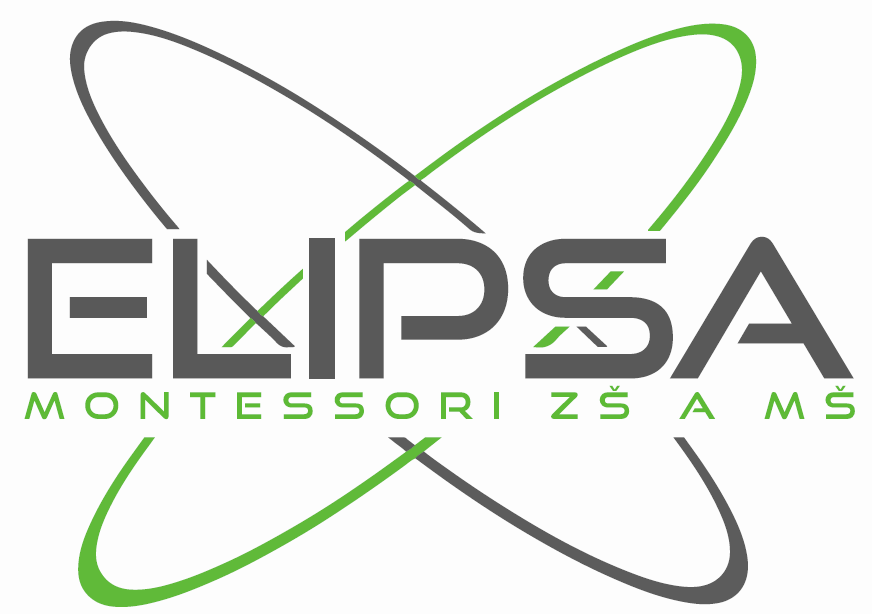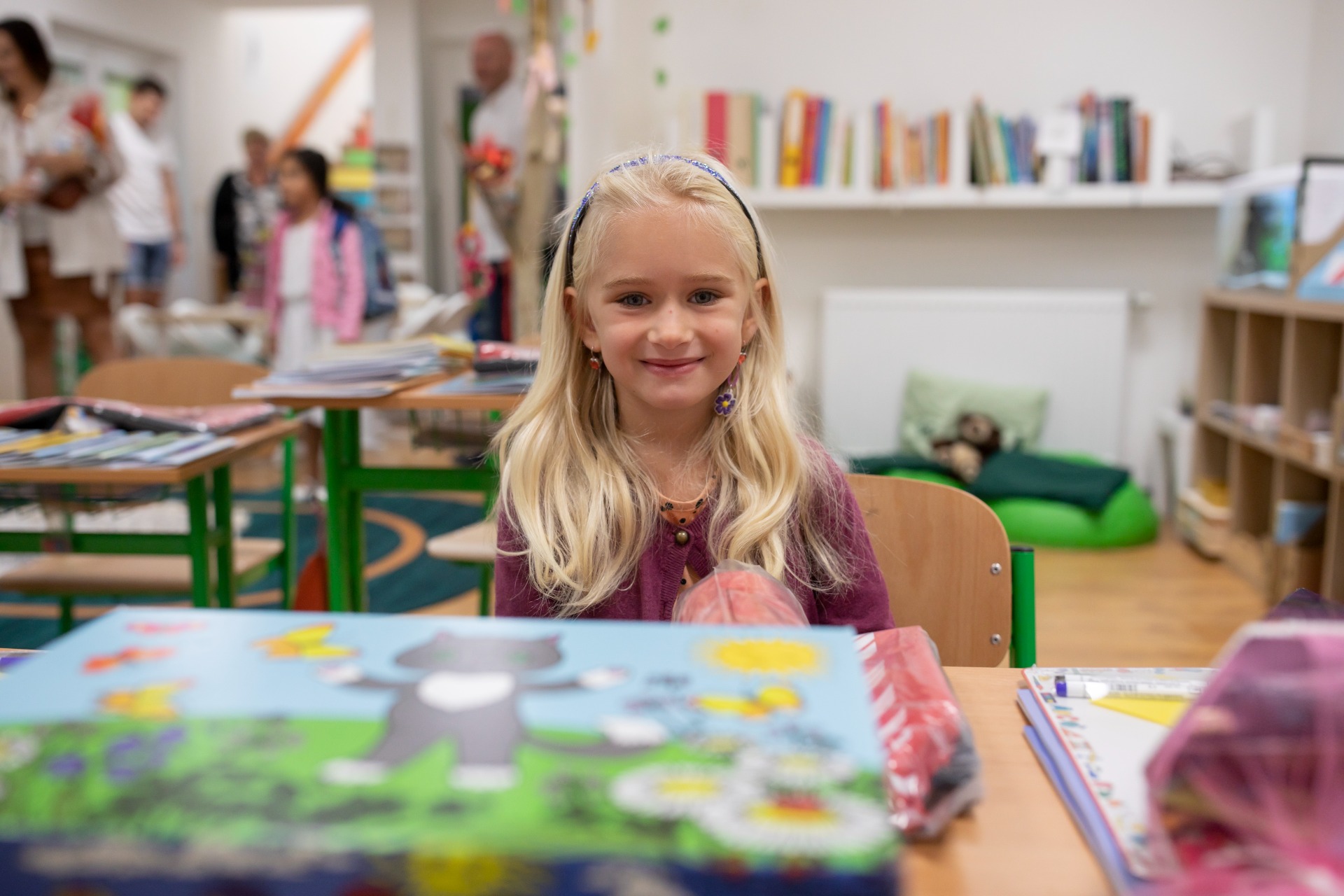
An elementary school with a capacity of only 15 children is an ideal environment for quality Montessori education
Our Individual approach to children in a small class allows the teacher to give each child the attention they need and support their individual development.
Strong interpersonal relationships between children and teachers create a safe and open environment for learning and collaboration. Flexibility and room for creativity allow for adapting teaching to the current needs of children, which supports their independence and active participation..
High-quality material facilities ensure clarity and easy access to tools that support practical learning. Balanced time for teaching and rest gives children space for regeneration and personal development, which is crucial for their well-being.
Our classroom, as a community space, encourages mutual cooperation and respect, which ensures healthy social relationships. This combination of approaches makes the classroom with a capacity of 15 children an ideal place for quality education and personal growth.
Montessori primary school ELIPSA Karlovy Vary
for first grade 1-5.
The first three years of Montessori primary school (commonly referred to as Lower Elementary) cover the period from 6 to 9 years, using the specific pedagogical principles of the Montessori method, which support the individual development of each child. This period is characterized by a strong focus on the development of practical skills, cooperation and the development of cognitive abilities. In our school, education is tailored to the individual needs of the child, each student can progress at their own pace.
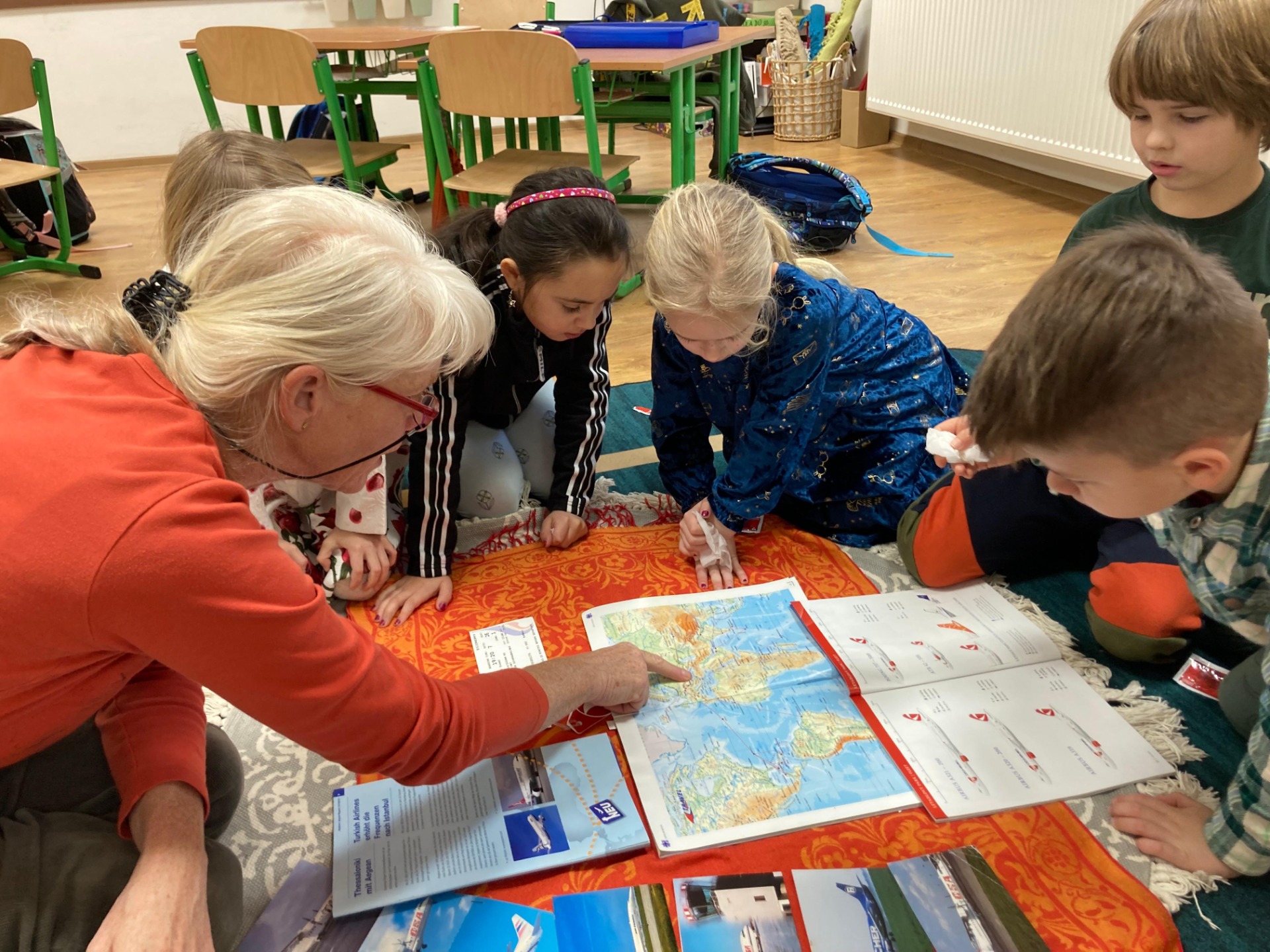
The second three-year Montessori elementary school focuses on developing independent thinking, responsibility, and critical evaluation, with children deepening their knowledge in various areas through interactive materials, project-based learning, and hands-on experiences.
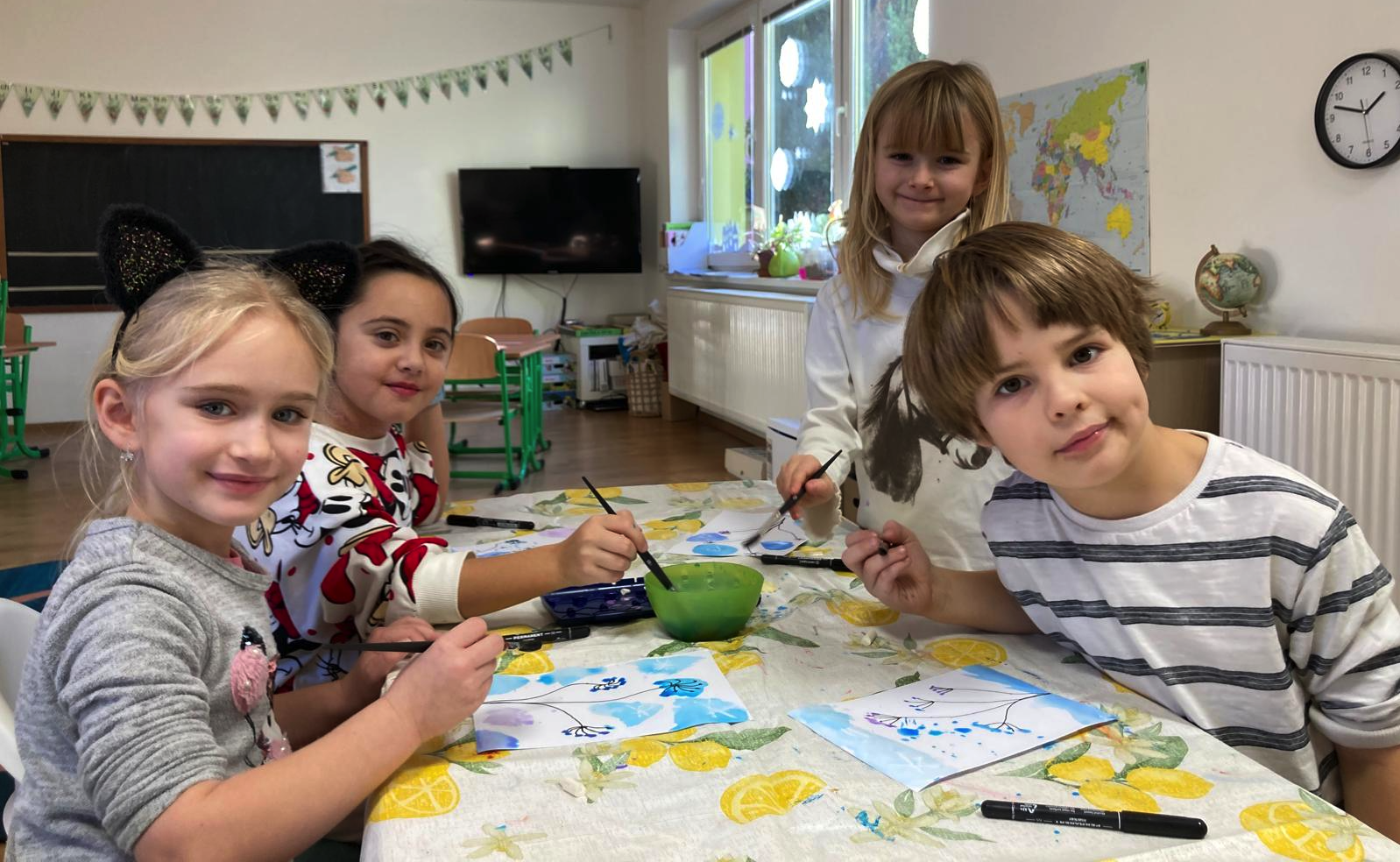
In the first three years of Montessori primary school, subjects are organised into broad areas of learning that are interconnected and holistic:
-
Language Education: Children learn to read, write, develop vocabulary and comprehension. Montessori language materials (e.g. sand letters, matching words and sentences) support reading and writing development in a way that is fun and natural for children.
-
Mathematics: Basic math skills (addition, subtraction, multiplication, division) are taught using concrete materials such as colored sticks, number boards, and other teaching aids. Children learn the concepts of numbers, mathematical operations, and basic geometry through manipulation of these materials, which helps to develop a deeper understanding.
-
Natural Sciences and Geography: Children are guided to learn about the world around them, from exploring natural phenomena (plants, animals, ecosystems) to the basics of geography. They use various maps, globes and other aids that help them understand the relationships between natural phenomena and the world.
-
History: In the Montessori approach, history is taught as part of a broader understanding of time and space, where children are introduced to human history, cultures, and the development of society. History is taught in large cycles, from the beginnings of humanity to the present..
-
Art and music: Creative expressions such as painting, sculpting, singing and playing instruments are an integral part of the educational process. Children have the opportunity to experiment with different forms of art and express themselves
In the second three-year Montessori in primary schools, subjects are organized thematically and interdisciplinary rather than by traditional subject areas. Children work on projects that connect different areas of knowledge, thereby acquiring skills in mathematics, science, languages, history and art in the context of a specific topic. The teaching is focused on active learning, where children learn through hands-on experiences and independent discovery. The teacher is more of a guide and supporter, helping children develop their critical thinking and problem-solving skills.
-
Language education is connected to literature and communication, children learn not only grammar and vocabulary, but also writing, reading and creative expression.
-
Mathematics is treated practically, children use Montessori materials to understand abstract concepts such as fractions, geometry or algebra.
-
Natural science is often integrated with projects on ecology, biology, and geography, where students test their knowledge directly in nature or through experiments.
-
History and social studies are taught through exploration of the past and the connection between different cultures, which fosters empathy and global thinking.

I am a first-year teacher who encourages independence, creativity, and responsibility in students, creating an environment that supports their natural development and allows them to learn at their own pace through concrete materials and practical experiences.
Hanka - Montessori primary school teacher for the first three years of life, grades 1 - 3
Hanka
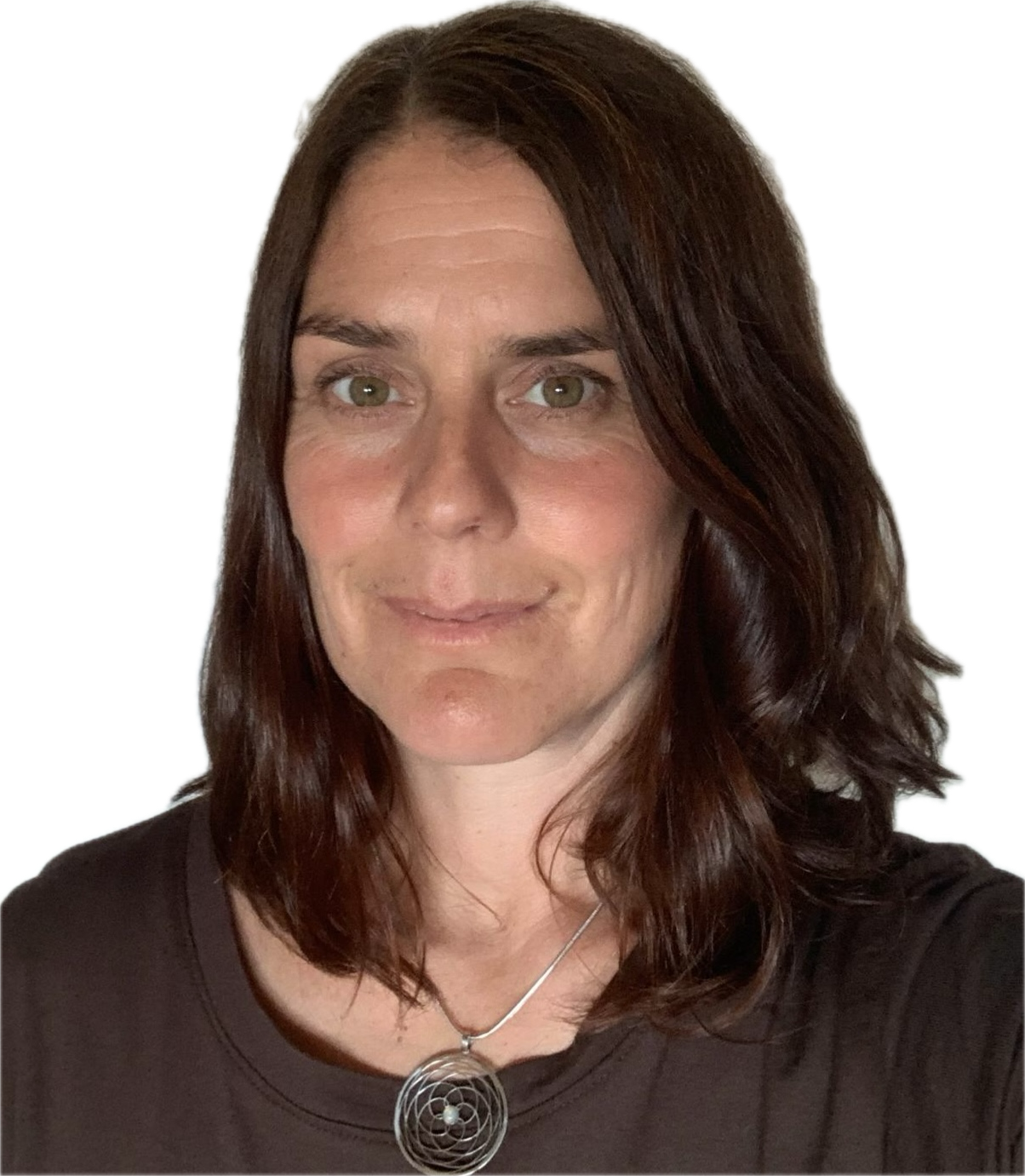
As a beginning Montessori 4th grade teacher, I focus on children discovering new knowledge independently, developing creativity and responsibility for their learning in an environment that supports their natural interest and individual pace.
Marcela - Montessori primary school teacher for the second three-year period, grades 4-5
Marcela
